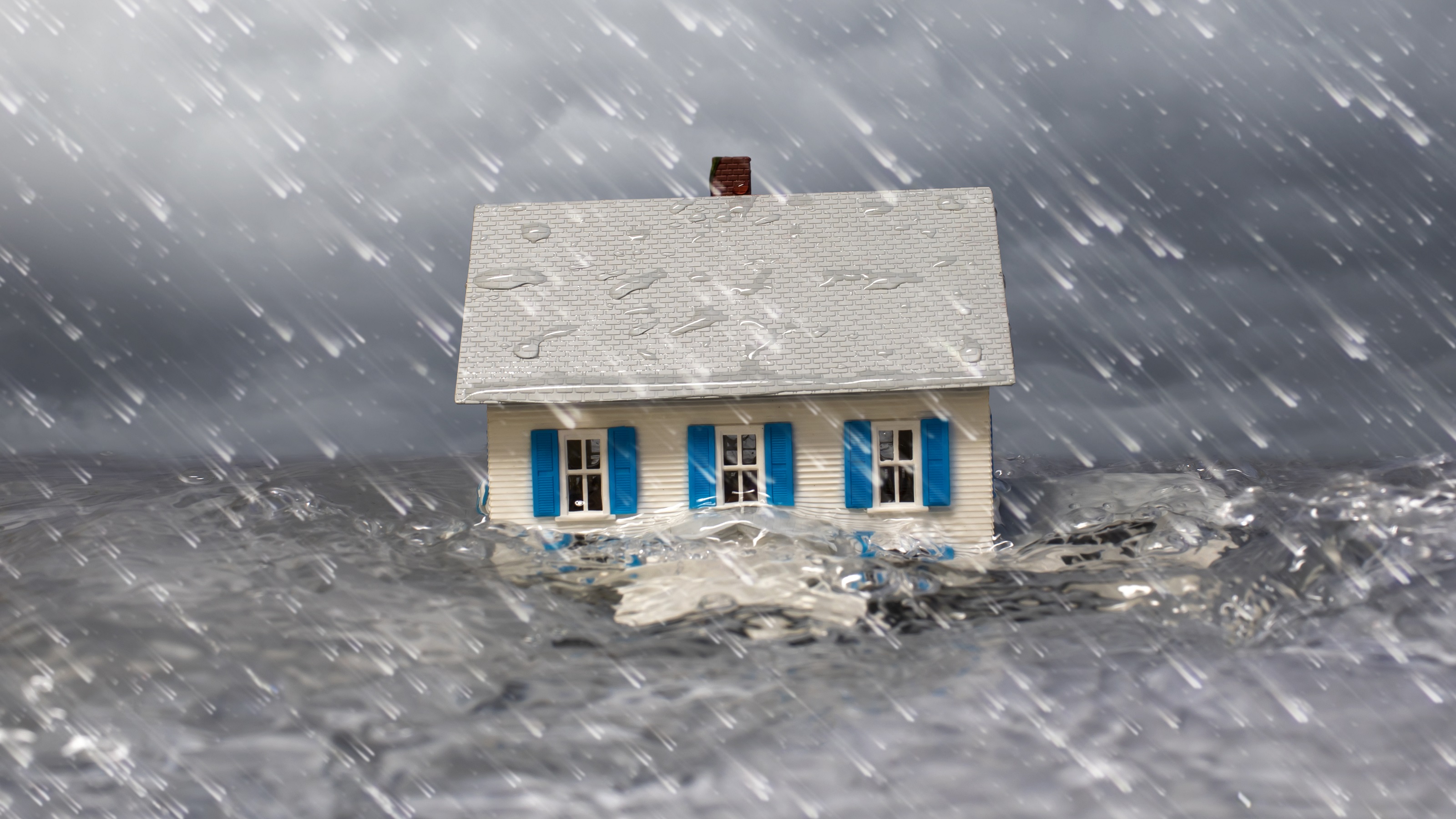After the Disaster: An Expert's Guide to Deciding Whether to Rebuild or Relocate
Homeowners hit by disaster must weigh the emotional desire to rebuild against the financial realities of insurance coverage, unexpected costs and future risk.


Profit and prosper with the best of Kiplinger's advice on investing, taxes, retirement, personal finance and much more. Delivered daily. Enter your email in the box and click Sign Me Up.
You are now subscribed
Your newsletter sign-up was successful
Want to add more newsletters?

Delivered daily
Kiplinger Today
Profit and prosper with the best of Kiplinger's advice on investing, taxes, retirement, personal finance and much more delivered daily. Smart money moves start here.

Sent five days a week
Kiplinger A Step Ahead
Get practical help to make better financial decisions in your everyday life, from spending to savings on top deals.

Delivered daily
Kiplinger Closing Bell
Get today's biggest financial and investing headlines delivered to your inbox every day the U.S. stock market is open.

Sent twice a week
Kiplinger Adviser Intel
Financial pros across the country share best practices and fresh tactics to preserve and grow your wealth.

Delivered weekly
Kiplinger Tax Tips
Trim your federal and state tax bills with practical tax-planning and tax-cutting strategies.

Sent twice a week
Kiplinger Retirement Tips
Your twice-a-week guide to planning and enjoying a financially secure and richly rewarding retirement

Sent bimonthly.
Kiplinger Adviser Angle
Insights for advisers, wealth managers and other financial professionals.

Sent twice a week
Kiplinger Investing Weekly
Your twice-a-week roundup of promising stocks, funds, companies and industries you should consider, ones you should avoid, and why.

Sent weekly for six weeks
Kiplinger Invest for Retirement
Your step-by-step six-part series on how to invest for retirement, from devising a successful strategy to exactly which investments to choose.
A home is more than an asset — it’s where milestones are celebrated, memories are made, and a sense of stability is anchored. The emotional and financial impact can be profound when a natural disaster strikes.
And once the immediate damage is assessed, a more complex question emerges: Should we rebuild or begin again somewhere else?
This is rarely a simple decision. It’s shaped by more than insurance coverage or rebuilding costs; it touches deeply personal considerations around security, legacy and long-term vision.
From just $107.88 $24.99 for Kiplinger Personal Finance
Become a smarter, better informed investor. Subscribe from just $107.88 $24.99, plus get up to 4 Special Issues

Sign up for Kiplinger’s Free Newsletters
Profit and prosper with the best of expert advice on investing, taxes, retirement, personal finance and more - straight to your e-mail.
Profit and prosper with the best of expert advice - straight to your e-mail.
The Kiplinger Building Wealth program handpicks financial advisers and business owners from around the world to share retirement, estate planning and tax strategies to preserve and grow your wealth. These experts, who never pay for inclusion on the site, include professional wealth managers, fiduciary financial planners, CPAs and lawyers. Most of them have certifications including CFP®, ChFC®, IAR, AIF®, CDFA® and more, and their stellar records can be checked through the SEC or FINRA.
The emotional undercurrent
For many, the instinct to rebuild is tied to the desire for normalcy and control after upheaval. It can offer a sense of progress, of reclaiming what was lost.
But it also means returning to a place marked by trauma and uncertainty. Some find healing in restoration, others in a new beginning.
Regardless of financial flexibility, emotional readiness matters. Is rebuilding truly the right path or simply the most familiar one?
What your insurance allows
Many policyholders are surprised to discover how insurance works after a disaster. Standard policies typically require you to rebuild on the existing foundation.
In other words, your coverage is designed to restore what was there, not fund a move or build elsewhere.
While useful, FEMA assistance is intended only to help repair or replace a primary residence, not purchase a new home.
Some policies include “cash-out” or “agreed value” provisions, which allow you to receive the replacement value and rebuild in a different location. These features are not common and should be reviewed in detail with an experienced insurance professional.
One homeowner we know discovered — almost by chance — that their broker had included this provision in their policy. It turned out to be a fortunate surprise, as it gave them the flexibility to relocate and rebuild elsewhere after the California fires early this year.
Tip: Having a full understanding of your policy, before disaster strikes, can make a world of difference. Schedule an annual review with your insurance team or CFP® as part of your broader wealth planning process.
Rebuilding: What it really costs
Even with strong coverage, rebuilding can be complicated. Labor and materials are often in short supply after a disaster, driving up costs and delaying timelines.
For those used to custom finishes and high standards of workmanship, compromises can feel especially frustrating.
Local regulations may also require you to rebuild public infrastructure, such as sewer lines or sidewalks.
One of our wealth managers, who personally experienced the aftermath of the California fires, noted that many homeowners were surprised to learn that insurance didn’t cover these city-mandated costs.
While financing is often available through government loans at relatively low interest rates, these added expenses can still catch families off guard.
And while immediate costs are top of mind, it’s equally important to plan for rising insurance premiums. Insurers adjust rates to reflect increased risk, particularly in areas prone to wildfires, hurricanes or floods.
This trend isn’t hypothetical — it’s already being implemented in states like California.
Rethinking risk and resilience
After a major loss, it’s worth re-evaluating your relationship with risk. Rebuilding in the same location may offer emotional closure, but is it sustainable?
Some homeowners are opting to relocate within the same community to areas less exposed to future events. Others are incorporating climate-resilient materials and designs into their rebuilds.
These choices aren’t just about safety — they can also improve long-term property value and reduce future insurance premiums.
Looking for expert tips to grow and preserve your wealth? Sign up for Building Wealth, our free, twice-weekly newsletter.
Still others choose to rent for a period while exploring their options. This approach offers continuity and access to community resources, without the pressure of an immediate real estate decision.
If the homeowner wishes to stay in the area but outsource the risk, selling the property and renting is a good option.
Resources beyond insurance
Families navigating recovery often benefit from support outside the traditional system. Nonprofits, foundations and private organizations may provide materials, funding or logistical help that eases the burden of rebuilding.
Groups like Rebuilding Together focus specifically on assisting with long-term recovery efforts.
Your advisory team — wealth manager, estate attorney, CPA — can also help coordinate resources, from tapping into philanthropic networks to evaluating tax and estate implications of relocation or rebuilding.
A decision that shapes the future
Choosing whether to rebuild or relocate isn’t just about structures — it’s about values, stability and vision. It requires thoughtful consideration of emotional priorities, financial strategy and environmental risk.
Talk with your trusted advisers. Consider the full picture — practical and personal.
Most importantly, give yourself the space to make a decision that reflects your long-term goals and your family’s future well-being.
Related Content
- How to Prepare For a Hurricane and Other Natural Disasters
- How to Deal With Property Insurance Claims After Wildfires
- Retirees, Be Prepared for a Natural Disaster
- How to Protect Your Home from Natural Disasters with the Right Insurance
- Post-Disaster Financial Planning: How to Protect Your Assets
Profit and prosper with the best of Kiplinger's advice on investing, taxes, retirement, personal finance and much more. Delivered daily. Enter your email in the box and click Sign Me Up.

Mallon FitzPatrick leads Robertson Stephens’ Wealth Planning Team and delivers comprehensive wealth planning solutions for high-net-worth and ultra-high-net-worth clients. He collaborates with clients to develop a strategy that integrates tax planning, risk management, philanthropy, liquidity and balance sheet management, estate planning and investments. Ultimately, the client is provided with a cohesive wealth plan that helps increase the likelihood of experiencing good outcomes, meets their objectives and aligns with their preferences.
-
 Quiz: Do You Know How to Avoid the "Medigap Trap?"
Quiz: Do You Know How to Avoid the "Medigap Trap?"Quiz Test your basic knowledge of the "Medigap Trap" in our quick quiz.
-
 5 Top Tax-Efficient Mutual Funds for Smarter Investing
5 Top Tax-Efficient Mutual Funds for Smarter InvestingMutual funds are many things, but "tax-friendly" usually isn't one of them. These are the exceptions.
-
 AI Sparks Existential Crisis for Software Stocks
AI Sparks Existential Crisis for Software StocksThe Kiplinger Letter Fears that SaaS subscription software could be rendered obsolete by artificial intelligence make investors jittery.
-
 5 Top Tax-Efficient Mutual Funds for Smarter Investing
5 Top Tax-Efficient Mutual Funds for Smarter InvestingMutual funds are many things, but "tax-friendly" usually isn't one of them. These are the exceptions.
-
 Why Invest In Mutual Funds When ETFs Exist?
Why Invest In Mutual Funds When ETFs Exist?Exchange-traded funds are cheaper, more tax-efficient and more flexible. But don't put mutual funds out to pasture quite yet.
-
 We Retired at 62 With $6.1 Million. My Wife Wants to Make Large Donations, but I Want to Travel and Buy a Lake House.
We Retired at 62 With $6.1 Million. My Wife Wants to Make Large Donations, but I Want to Travel and Buy a Lake House.We are 62 and finally retired after decades of hard work. I see the lakehouse as an investment in our happiness.
-
 Social Security Break-Even Math Is Helpful, But Don't Let It Dictate When You'll File
Social Security Break-Even Math Is Helpful, But Don't Let It Dictate When You'll FileYour Social Security break-even age tells you how long you'd need to live for delaying to pay off, but shouldn't be the sole basis for deciding when to claim.
-
 I'm an Opportunity Zone Pro: This Is How to Deliver Roth-Like Tax-Free Growth (Without Contribution Limits)
I'm an Opportunity Zone Pro: This Is How to Deliver Roth-Like Tax-Free Growth (Without Contribution Limits)Investors who combine Roth IRAs, the gold standard of tax-free savings, with qualified opportunity funds could enjoy decades of tax-free growth.
-
 One of the Most Powerful Wealth-Building Moves a Woman Can Make: A Midcareer Pivot
One of the Most Powerful Wealth-Building Moves a Woman Can Make: A Midcareer PivotIf it feels like you can't sustain what you're doing for the next 20 years, it's time for an honest look at what's draining you and what energizes you.
-
 Stocks Make More Big Up and Down Moves: Stock Market Today
Stocks Make More Big Up and Down Moves: Stock Market TodayThe impact of revolutionary technology has replaced world-changing trade policy as the major variable for markets, with mixed results for sectors and stocks.
-
 I'm a Wealth Adviser Obsessed With Mahjong: Here Are 8 Ways It Can Teach Us How to Manage Our Money
I'm a Wealth Adviser Obsessed With Mahjong: Here Are 8 Ways It Can Teach Us How to Manage Our MoneyThis increasingly popular Chinese game can teach us not only how to help manage our money but also how important it is to connect with other people.